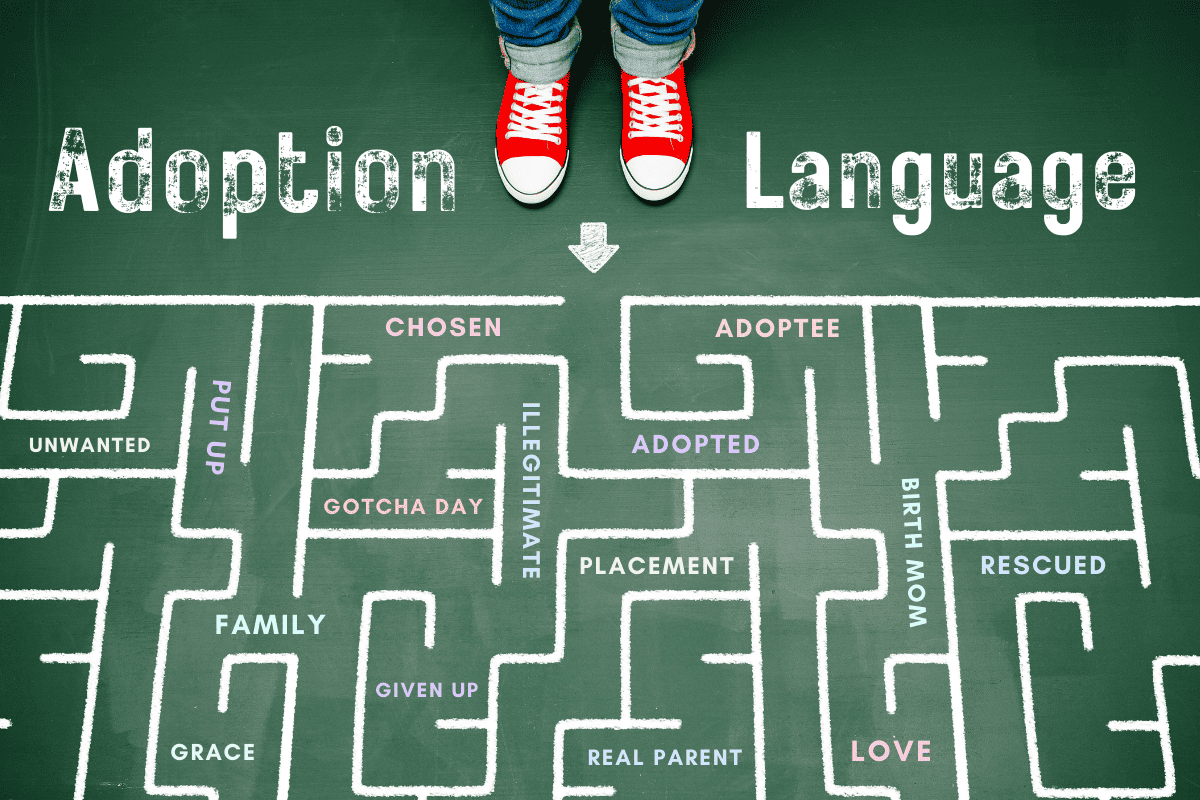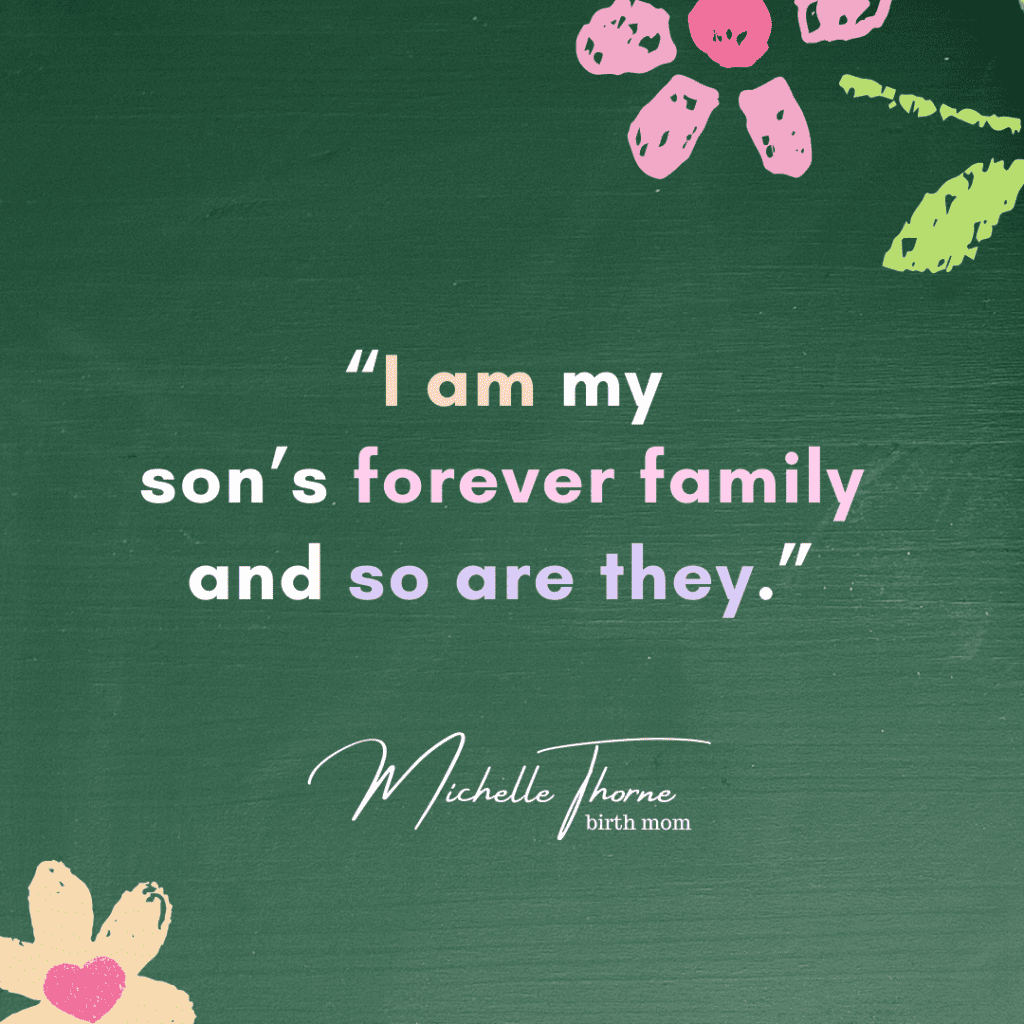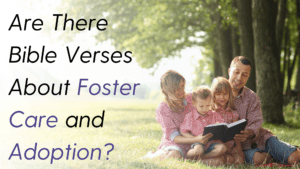When talking about adoption, sometimes we say words or phrases that we don’t know are harmful or offensive to those within the adoption community. These words are likely what we grew up hearing, surrounding us in books, movies, the media or in our own homes. Often, adoption wording mistakes come from simply not knowing and don’t intend harm, but the words can still be triggering.
In the generations before us, adoption and birth mothers were often looked upon negatively and kept secret. Likewise, the language surrounding adoption reflected this as well. As adoption has evolved into a more open relationship that seeks to honor all sides of the adoption triad, the language has shifted.
In recent years, the adoption community has worked to bring awareness to change the words and stigma of adoption. As a birth mother myself, I am grateful for language that expresses my positive open adoption experience more accurately. It also proves to be helpful for adopted children to have their adoption story and birth family referred to in a positive light.
What Adoption Words Should I Avoid?
Impact on Birth Mothers
Many of these negatively portray birth parents who chose adoption and create a savior mentality of adoptive families. These phrases continue the harmful stereotype that birth mothers are bad or lazy people who don’t care for their children. Some of these words hint that the birth mother “abandoned” their child selfishly. In the vast majority of adoptions today, this assumption isn’t true.
Their stories are likely much more complex than that. Sometimes, their story may involve coercion where they had no choice. We must give grace and honor to a birth parent’s journey, no matter how she arrived at the decision of adoption. In many cases, birth mothers choose adoption out of love. Furthermore, the choice comes from a desire to provide a life for their child that they can’t offer due to challenging circumstances.
Impact on Adoptees
Using words like “gave up,” “put up,” “unwanted,” and “abandoned” can affect how a child views themselves as well. They will internalize their own story and worth with the words spoken over them or shared with others. It can affect how they view their birth family, themselves and adoption as a whole. These words may make them feel like they were a “mistake” or discarded when in truth, their placement was a careful and compassionate decision.
Additionally, we have to be careful not to use words that imply ownership by an adoptive family. For example, celebrating adoption finalization with the term “gotcha day” often feels, well, icky to birth parents and adoptees; it feels much like “snatching” a child from their biological family or international culture. Again, being intentional to honor all sides of the adoption triad is the goal.
For More Information on Birth Mothers:
What Are the Best Words for the Adoption Process?
The good news is that shifting language is a relatively easy thing to do! Slip-ups may happen since the words above are ingrained in us. However, it’s okay. Just pause and correct yourself.
Consider Using:
- “Placed in an adoption plan”
- “Chose adoption”
- “Chose to parent”
- “Born to unmarried parents”
- “Relinquished her rights”
- “Birth mother/father”
- “Biological mother/father”
- “Unintended pregnancy”
- “Adoption finalized”
- “Family day”
- “Adoptive family”
These are adoption words preferred in the community to better relay adoption facts with fewer stigmas attached. I did not “give away” or “give up” on my baby girl. On the contrary, I painstakingly prayed through every decision I made for us. She wasn’t unwanted; she was lovingly placed into her parents’ arms. These words better reflect the careful choices made within an adoption plan. Additionally, these word choices honor the birth parent’s role in a child’s life along with their adoptive family.
I also understand an adoptive family wanting to celebrate their child joining the family. However, we also need to consider the feelings of the child and their birth family. They will experience the grief and joy of adoption complexities in a different way. As an adoptive family, one can celebrate adoption finalization with a “family day” instead of calling it “gotcha day.”
When Speaking to an Adoptee:
Another word for a person who was adopted is “adoptee.” I say “was adopted” instead of “is adopted” because many adoptees prefer to use past tense. To them, adoption was an act of the past. Being adopted was an event in their life, not their identity.
I want to pause with a disclaimer that, while the majority of the adoption community agrees with the language changes above, there are some adult adoptees (and birth parents) who still use words like “gave up.” They may use this phrase because that is how they feel most correctly describes their experience. I never want to discount the feelings of those who feel this way. Adoptees have their own stories to tell.
Are There Words Not to Say About Those Who Are Adopted?
I encourage everyone to ask and listen to adoptees’ voices to learn more. Please consider that adoptees may feel mixed emotions about their adoption, even with a positive experience. They may not feel grateful, lucky or a gift because biological roots and identities may be missing in their lives. Many adoptees have shared that these phrases are said to help. However, these phrases can also add a layer of guilt to those still processing their story.
Leah Outten joins the See Life roundtable to discuss adoption.
Caution Words:
- “You’re so lucky to be adopted”
- “Adoption is a gift”
- “You were chosen”
- “You should be grateful”
There are so many more statements, like these, that might be hurtful to someone who was adopted.
Why Adoption Language Matters
Whether you are a family seeking to start the adoption process, a volunteer in a pregnancy center or someone looking to support the adoptive family in your church — adoption language matters. We will impact our culture by doing away with the past negative stereotypes and reframing how we talk about adoption. Slowly but surely, we all can help by shifting our language and honoring all sides of the triad.






















